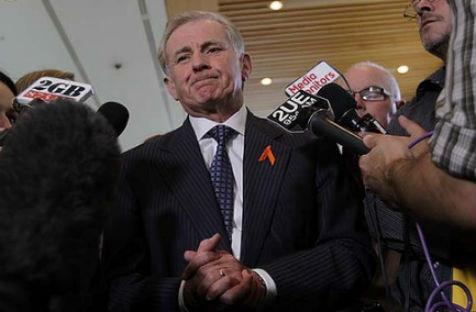In the wake of the rush of resignations which followed the leadership spill, the Prime Minister announced his Cabinet this week with a good deal less choice than his predecessor. The results were not good for the Arts and related portfolios.
Former Arts Minister Simon Crean is a huge loss to the sector which feels a sense it never got to say good-bye. Crean’s contribution in negotiating and launching Creative Australia probably makes him the most important Arts Minister in 40 years and the fact that he did not stick around to implement the policy is certainly regrettable.
There were hopes that Crean would be reinstated to the Arts portfolio in the new line-up. After all, his resignation from Cabinet just days after launching the National Cultural Policy was a result of an earlier attempted leadership spill and his preference for Prime Minister Rudd was on the record. But his decision to leave Parliament at the next election put an end to that idea.
It’s not that the sector is unhappy with Minister Tony Burke. In the three months since his appointment the new Minister has successfully seen the Australia Council Act through Parliament, appointed the new Australia Council Board and launched a review of the Resale Royalty Scheme, so he’s no slouch.
But even before the reshuffle the Arts seemed to have been sidelined by his other portfolios and this week that problem became a lot worse when – after the PM refused the Gillard supporter’s offer to resign – Burke was handed the poisoned chalice of Immigration, a heavy and problematic portfolio that is likely to ensure the Arts get little of his attention.
The Opposition is already making hay from the situation. Eschewing the long-established bipartisanship of the sector, Opposition Arts Spokesman Senator George Brandis went on the attack this week, criticising both the appointments for the new Australia Council Board and the new structure under the Act. The Minister’s office, up to its eyeballs in picking up the heavy demands of the Immigration portfolio, did not respond to requests for a comment.
In related portfolios, Anthony Albanese is now the Minister for Communications and Broadband, taking over from Senator Stephen Conroy, who resigned in the wake of the Gillard defeat. Albanese is also Deputy Prime Minister and Minister for Transport and Infrastructure but the problem of distraction is unlikely here: the importance of Broadband debate and the Opposition’s high profile communications spokesman Malcolm Turnbull will ensure the issue gets plenty of coverage.
With the former Minister in the Senate, Albanese has experience responding to Communications questions in the House but the loss of the highly experienced and respected Minister Conroy in the portfolio will be strongly felt. Conroy drove the NBN policy and in his time as Minister for Communications entrenched it so successfully that there is no turning back, no matter who wins the election. He was farewelled by technology website Delimiter as ‘Australia’s greatest ever Communications Minister‘ and without his depth of knowledge and experience Albanese will be hard pressed to match Turnbull in the Communications arena.
There are also a bunch of related appointments: Ed Husic, who has a background in communications, becomes Parliamentary Secretary for Broadband; Kim Carr is now the Minister for Industry, Innovation, Science and Higher Education and Kate Lundy, Minister Assisting for the Digital Economy.
But Screen Hub’s David Tiley writes that the real concern is what will happen to the staff who have developed expertise on the complex issues related to digital communications. Will the policy wonks make it across the flaming trenches?
Tiley predicts we can now expect that the entire communications sector will enter a complexity free zone, in which Albanese, the Government and the Opposition will want to reduce everything to signs they can paint on their shields. That means there will be no election commitments except to the NBN and little hope of detailed debate.
It’s not a situation in which either bipartisan support for the arts or sophisticated debate about communications is likely to flourish.





